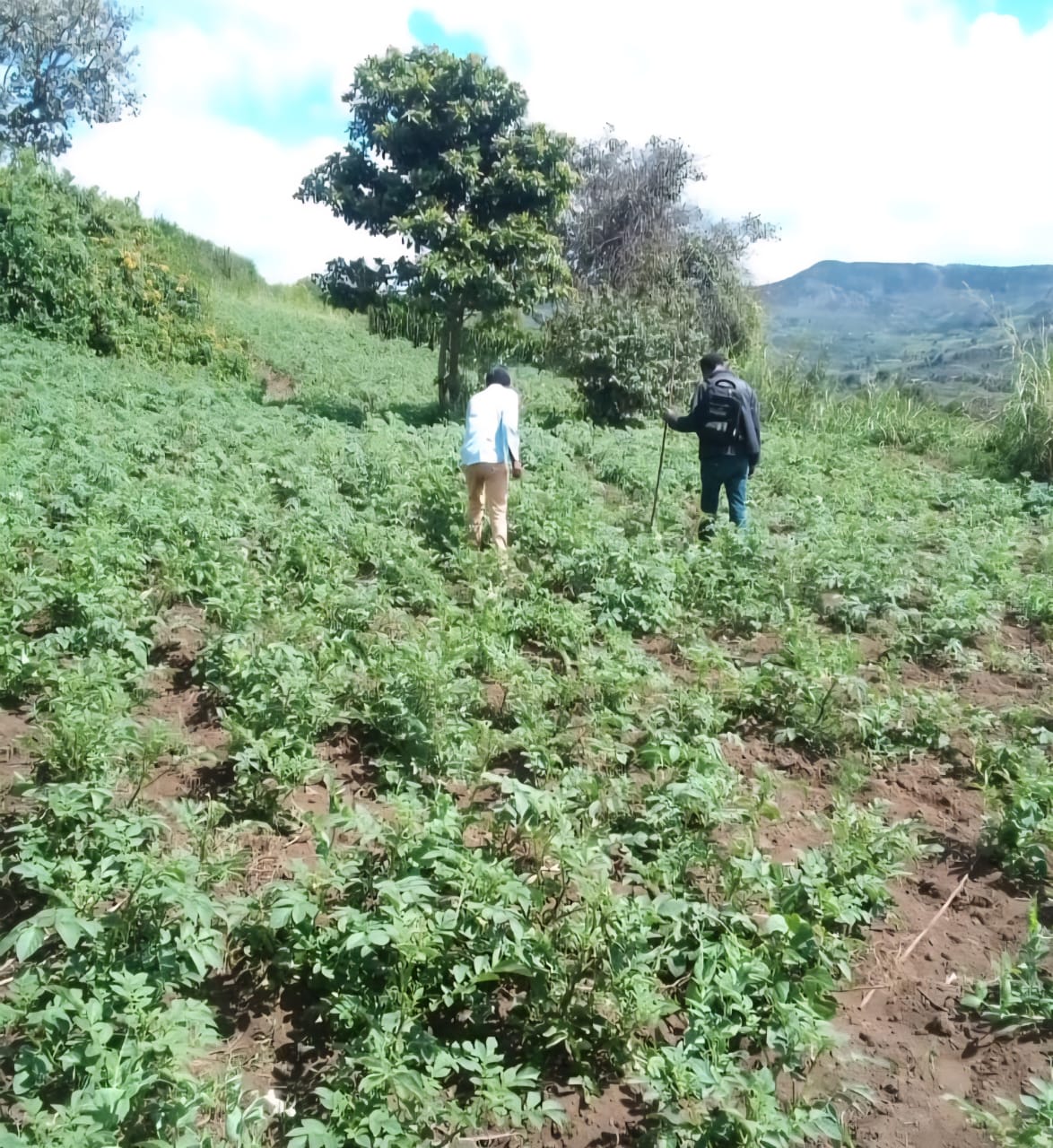Rwibaga : the potato devours the forest

SOS Médias Burundi
Rwibaga, July 20, 2025 – While Burundi continues its national reforestation campaign, « Ewe Burundi Urambaye, » led by the highest authorities to restore ecosystems and combat the effects of climate change, a countervailing trend is taking hold in Mugongo-Manga and Mukike. It is in the district of Rwibaga, in Bujumbura Province (western Burundi). There, potato cultivation is gaining ground, literally : forests are gradually giving way to fields, at the cost of accelerated deforestation.
Faced with demographic pressure and the need to survive, many local families are turning to this crop, deemed profitable and well-adapted to the highland climate.
« Here, potatoes are what allow us to live. We have no other choice, even if we cut down the trees, » says Évariste, a farmer from Mugongo-Manga.
But to expand the arable land, eucalyptus and other tree species are being cut down without restraint. The hillsides, once covered with forests, are now exposed, weakening the soil and exposing it to climatic hazards.
The ecological consequences are already visible: soil erosion, landslides, the disappearance of certain water sources, and a significant decline in land fertility.
« There used to be a spring at the bottom of the hill. It disappeared when the trees were removed, » says Alphonsine, a resident of Mukike.
Adding to this are the effects of climate change, which are manifesting in increasingly frequent heat waves, followed by torrential rains that destroy crops. A vicious circle is taking hold : to cultivate more crops, trees are destroyed, but this destruction makes the land less fertile, less productive, and therefore more vulnerable.
This paradox raises questions : while the government is investing in reforestation nationwide, some localities, due to a lack of supervision and alternatives, are fueling worrying deforestation. How can food security and environmental protection be reconciled?
However, solutions exist. Agroforestry, for example, allows for cultivation while maintaining tree cover. Crop rotation, the use of soil conservation techniques, or the introduction of less destructive alternative crops could also alleviate pressure on forests.
« We hear about agroforestry, but no one comes to show us how it works, » laments Jean-Marie, a young farmer from Rwibaga.
The Burundian government, in collaboration with local authorities, must act without delay. It is imperative to enforce environmental laws, regulate agricultural practices, and punish damage to ecosystems. Otherwise, national reforestation efforts risk being in vain.
The country’s ecological future cannot be guaranteed if, on the one hand, we plant trees and, on the other, cut them down to survive. Protecting the forests of Mukike and Mugongo-Manga is a collective responsibility. It is time for the law to come to the aid of trees, before the potato becomes the silent engine of impending desertification. The survival of future generations depends on it.

